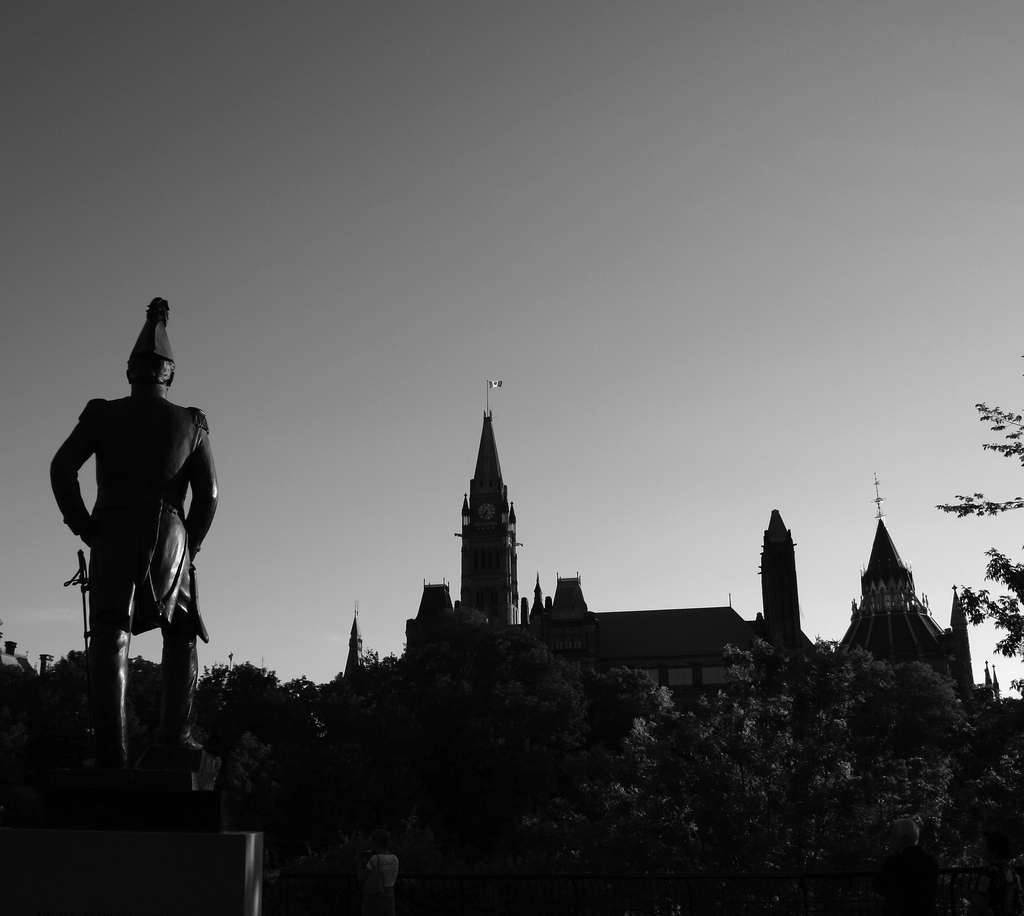After Wednesday’s events in Ottawa, I want to comment on one version or account (yes, the dread “narrative”) which was dominant in the reporting. It’s the “unprecedented chaos, lost our virginity/innocence, never gonna be the same, demise of Canada as a Peaceable Kingdom” rendering.
The Peaceable Kingdom isn’t even a Canadian phrase. It was used by U.S. Quakers in the 19th century. Literary critic Northrop Frye applied it here in the 1960s and it was popularized by Toronto historian and city councillor William Kilbourn. When I challenged him on its usage, he scoffed, “Don’t you recognize irony, man?” It was sarcastic, or at best an aspiration far from reality.
Canada fought through two world wars, largely as a loyal British adjutant. Our troops were known for violence and fierceness — like our hockey. There were strong racist strains in Canada toward French-Canadians and native peoples; and racist, “none is too many” immigration policies. Some of that was challenged in the 1960s (hence Kilbourn’s “man”) but in the midst of it came a far more severe episode of “homegrown terrorism”: the 1970 FLQ crisis. Ottawa was occupied by troops in tanks. In Quebec hundreds were thrown in jail without charges. Public figures were kidnapped and one was murdered. What virginity?
Any virginity or innocence that Canada has was battled over and acquired in those years, not the normal route to chastity. The figure most associated with the peace-and-love Canadian image was Pierre Trudeau — who imposed martial law and told “bleeding heart liberals,” just watch me. Ten years later he brought in the Charter of Rights and Freedoms. You can at least argue it was his response to what he may have felt was his overreach in 1970. He embodied the struggle to wrest a different kind of Canadianness from the earlier model.
That fight for a new version of Canada was begun by politicians like Lester Pearson, who’d been through the two wars and felt there must be another way. With Canada finally emancipated from imperial control, and without the power to constitute an empire itself, they tried to build international bodies like the UN to at least share control over events with disaster-prone empires. They invented activities like peacekeeping as foreign policy and military alternatives. It was a work in progress but it attracted support — so much that it became identified with Canadian values, as if every Canadian received it at birth or upon citizenship. It suited a recently emancipated, formerly colonial nation.
What I find so irritating about the innocence/virginity narrative, aside from its ignorance, is how it subverts the debate we should be having on where to go now. Stephen Harper wants to reverse the course of the last 50 years and that’s his right. Nothing is irreversible. He restored the “Royal” to the military, scorned the UN, rubbished international initiatives like Kyoto and signed up as an enthusiastic subaltern for imperial ventures led by the U.S. and NATO. But the innocence narrative implies that the alternative to Harper isn’t a realistic set of policies; it’s a natural state like childhood which must be inevitably overcome. Those who peddle the narrative aid that obfuscation.
They also help conceal the real challenges of Wednesday’s events. Like what? All the party leaders were “defiant” and said Canada won’t be intimidated. I don’t even know what that means. Is there a place you go to sign up as intimidated? These aren’t nation-threatening entities. They’re criminals committing crimes. Calling it a state of war (another of the week’s tropes) gives them a ridiculous dignity. You can’t fight an actual war against criminals. It’s an intelligence-policing situation, as was 9/11, which the U.S. used as an excuse for real wars that made the situation massively more dire than it needed to be.
So where’s that Canadian innocence when we need it? Precisely among the police, I’d say. The Montreal cops who stopped a killer with only his death. The Ottawa cops. And sergeant-at-arms Kevin Vickers, whose policing career seems to personify firm peaceableness. Call them virginal if you want. They are peace officers and they appeared to do it well. Peacekeeping was never about non-violence. It’s about priorities, and minimizing the damage.
This column was first published in the Toronto Star.
Photo: Ian Mackenzie/flickr



